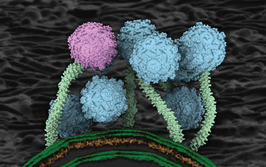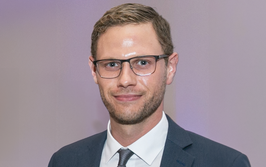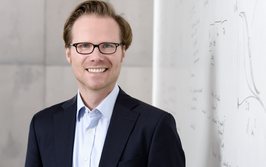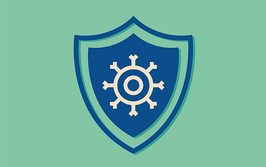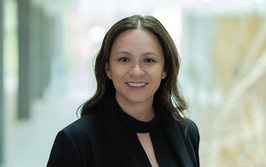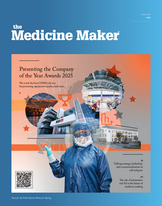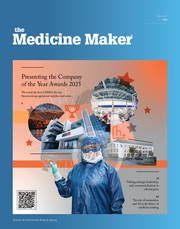Sharing is Caring
Sitting down with… Matthew Todd, Chair of Drug Discovery at UCL and founder of the Open Source Pharma movement
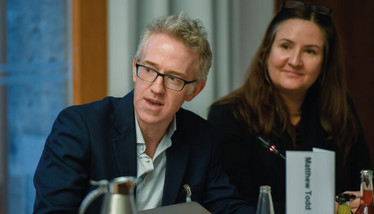
What got you interested in science?
My interest was cultivated at home. Dad was an engineer who built bits of spaceships, and my mom taught physics – we would often talk about science just because it was dinner table conversation. From a young age, I explored the idea of many careers in science, from dinosaur hunting to astronomy, but ended up focusing on organic chemistry. Throughout my academic career and numerous grant applications, however, the question underneath it all was always, “Are we working in the right way?”
Why did you feel there was a need for open source pharma?
The unfortunate public perception is that “big pharma” is just money-hungry. To some extent, this is true – big pharma are companies and they are obliged to make money, but this is just the way that business model works, so to blame them for this is curious.
But it is also strange that, generally speaking, this system is the only one that generates the medicines we use. There are going to be times when big pharma does a really great job, and there will be other times when it struggles to deliver. Alternatives are never a bad thing. This is why I like the idea of open source drug development – and why I founded Open Source Malaria, for example. We can’t expect a big pharma company to operate in an open source way, but the industry is full of people who genuinely want to help patients, so you can open up a different kind of research process. With Open Source Malaria, the number and quality of contributions from people working in the pharma industry is unreal – Pfizer and GSK in particular have contributed significantly. Working for the Encyclopedia Britannica doesn’t stop you from contributing to Wikipedia, and it doesn’t mean you have to give up your job.
How has open source developed?
Our first project started in late 2004 – we wanted to develop an optimized version of praziquantel with the World Health Organization (WHO). We put some ideas online, hoping to replicate the “hive mind” that we were seeing throughout the internet, but social media wasn’t around at the time, so you couldn’t spread ideas very easily. We didn’t get much of a response. It’s possible people thought we were crazy.
But we finally received a grant and got started in the lab. Still trying to tap into the hive mind, we deployed an online lab notebook in 2010 that anyone could contribute to. And it all kicked off… We received a lot of high-quality advice. For example, people in industry told us that our development plan would not work, so we changed our approach early to avoid wasting time and resources. Other contributors gave preliminary experimental results. Through contributions from strangers, we finished the project early and developed a very nice scientific solution.
For me, however, the project was an interesting demonstration of what happens when you open up research. With no protected intellectual property – and hence no possibility of a patent – people gave freely and quickly because the whole idea was uncomplicated. Since that first project, technology and social media have moved on enormously, so it’s even easier to work with people today. Yet our open source projects are still unusual. There is no secrecy, and there are no patents – and there never will be.
What are you working on at the moment?
After the WHO project, Tim Wells, the Chief Scientific Officer of the Medicines for Malaria Venture (MMV), asked me what would happen if we were to use open source to develop new drugs, without patents? We talked about it a lot – and then decided to try it out, since doing can be faster than talking. We are now on our third and fourth open malaria series, having finished the first and abandoned the second. If we can get a molecule into Phase I trials, it will be the first time a molecule that has been “born open” has reached the clinical phase. It’s a very challenging – and interesting – process. For some molecules, we have conflicting data but it’s all in the open for everyone to see and to work through, meaning people can witness science as it really is, rather than after it’s refined and packaged.
We’ve mirrored the Open Source Malaria project structure for mycetoma (a fungal infection) with the Drugs for Neglected Diseases Initiative (DNDi) in Geneva. It’s not the big killer that malaria is, but it is genuinely neglected in that there are currently no good drugs to save people from treatment by amputation. There are also some open projects on the go with TB, which we started with GSK.
What’s next for the open source movement?
I want to take open source pharma into new areas beyond neglected or tropical infections. I want to focus, for example, on rare diseases, where there’s just no market; dementia, where there is a frightening lack of drugs; and on antibiotics, where big pharma is pulling out because of the tough economic model. Excitingly, the first open source antibiotics venture is underway – a fragment-based drug discovery project based on data that was acquired by teams at the Universities of Warwick and Oxford. If people are looking for a genuinely new way to deliver an antibiotic, this is it.
We also need to explore how open source drug discovery can be economically sustainable. Open Source Malaria is backed financially by people who don’t require much return and because the medicine will be always be priced as low as possible, there is a weak economic incentive to compete with (or steal from) an open approach. But at the same time, you want to capture people’s enthusiasm for their investment.
If we can establish the possible rules, platform, and financial model for open source drug development, then others can run their projects with such validated approaches. In the coming years, projects that have been paused, perhaps for financial reasons, can be put into the public domain as starting points. Imagine 50 different antibiotics projects where everyone, from senior pharma executives through to school children in science class, can make sure that the research is being done well. That’s a future I’m excited about.

